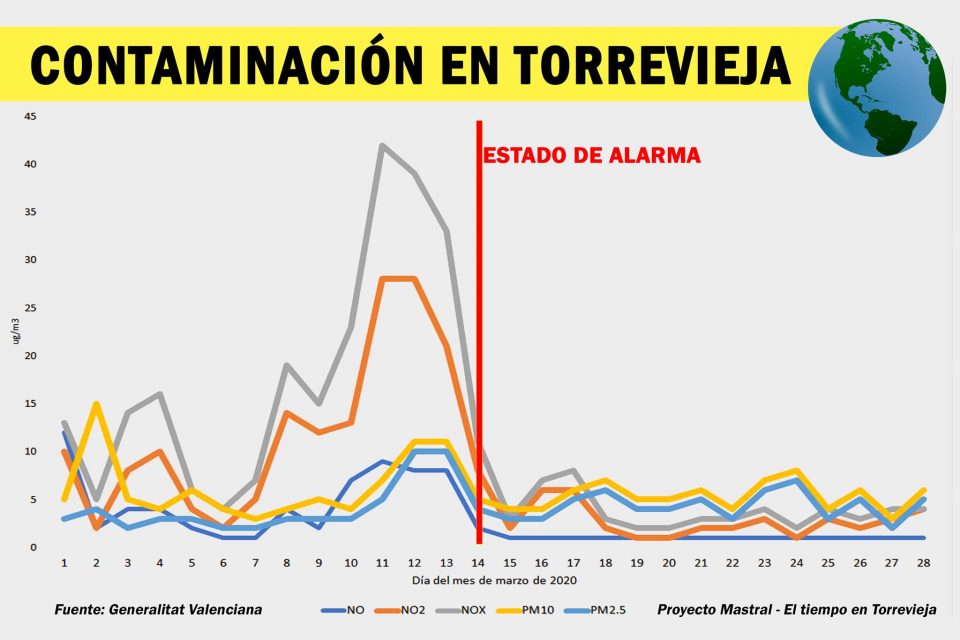The reduction of traffic due to the coronavirus, together with the rains are jointly responsible for the Costa Blanca experiencing its best air quality in 30 years
The emission of nitrogen dioxide has decreased 70% in the province during ‘lockdown’.
Home confinement and isolation measures introduced during the coronavirus health crisis have brought about a significant improvement in air quality across the province of Alicante, mainly due to the large reduction in traffic, the main pollutant, since the coronavirus crisis began.
Additionally, during the early part of ‘lockdown’ it frequently rained, so the atmosphere was being continuously cleaned, according to Jorge Olcina, director of the Climatology Laboratory at the University of Alicante.
According to the data monitored by the Generalitat measurement stations, the reduction in nitrogen dioxide contamination has fallen by 70% in the last month with the now at a quality not experienced for many years.

Also significant is the improvement of air quality around Alicante-Elche airport where the cancellation of over 150 daily flights has also had a significant effect.
For Carlos Arribas, of Ecologistas en Acción, said “this situation should set the benchmark for the future in restricting vehicle access to cities with more than 50,000 inhabitants and, now that the Prime Minister talks about de-escalation, we must start encouraging the use of bicycles, a means of transport that will ensure both reduced emissions and that safety distances are kept.
Around the Port of Alicante, the Generalitat monitoring station registers emissions of around 15 particles (PM) daily when the Daily Air Quality maximum authorised is 50.
The Valencian Surveillance and Control Network is made up of 65 monitoring stations distributed in the three provinces. The province of Alicante has 16 measuring stations in the municipalities of Alicante (seven stations, including those of the Port of Alicante), Agost, Alcoi, Benidorm, Elda, Elx (two stations), Orihuela, El Pinos and Torrevieja.





